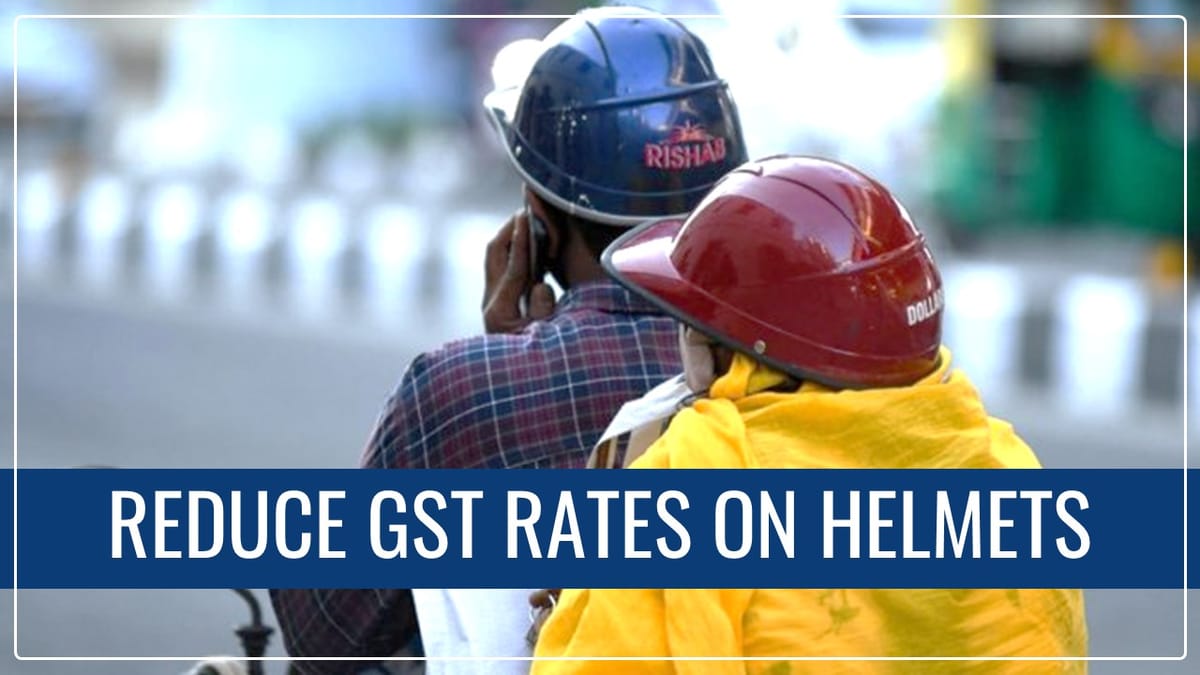In response to a critical issue, the President Helmet Manufacturers Association has proposed a multidimensional strategy targeted at reducing the human and economic consequences of road accidents.
Reetu | Jan 17, 2024 |

Helmet Manufacturers Association urges Government to cut Gst rates on Helmets and Testing Facilities Support
India, plagued by an increasing toll of road accidents, not only deals with the heartbreaking loss of life but also endures significant economic damage, estimated at 3.14% of GDP. In response to this critical issue, Rajeev Kapur, President of the Two-Wheeler Helmet Manufacturers Association and CEO of Steelbird Helmets, has proposed a multidimensional strategy targeted at reducing the human and economic consequences of road accidents.
Kapur’s major proposal is to revise the Goods and Services Tax (GST) on helmets, pushing the government to cut the current rate from 18% to 5%. Emphasising helmets as life-saving instruments, this effort is thought critical to improving affordability and overall helmet usage compliance, particularly among the general public.
Kapur shows a key weakness in India’s current helmet testing system. To address this, he argues for the construction of testing facilities by credible organisations such as IITs, QCI, and non-governmental organisations (NGOs). This strategic initiative aims to expedite the testing process, ensuring that helmets meet the necessary safety criteria and are widely available on the market.
Mr Kapur suggests investing 1% of Corporate Social Responsibility (CSR) funds in road safety projects in order to involve corporations more effectively. Corporations are encouraged to invest in raising road safety awareness in educational institutions, villages, and towns, as well as installing vital infrastructure like signage, rumble strips and speed breakers, and distributing subsidised helmets to low-income groups.
Concerned with the limited implementation of required helmet usage restrictions, Kapur advocates for a statewide expansion of Section 138 (4) (f) of the Central Motor Vehicles Rule (CMVR). This law requires two-wheeler manufacturers to deliver BIS-compliant helmets at the time of purchase.
Currently enforced in only 8 states, uniform adoption across the country is thought necessary to teach standard road safety norms, particularly in Tier II and III cities and village areas where compliance is significantly inadequate.
Rajeev Kapur’s comprehensive recommendations, if implemented, aim not just to reduce the immediate economic cost of road accidents on India’s GDP, but also to foster a safer road culture. These ideas, which are consistent with India’s objective to halve road fatalities by 2030, present a comprehensive strategy for establishing a safer and more sustainable road environment for all inhabitants.
In case of any Doubt regarding Membership you can mail us at [email protected]
Join Studycafe's WhatsApp Group or Telegram Channel for Latest Updates on Government Job, Sarkari Naukri, Private Jobs, Income Tax, GST, Companies Act, Judgements and CA, CS, ICWA, and MUCH MORE!"